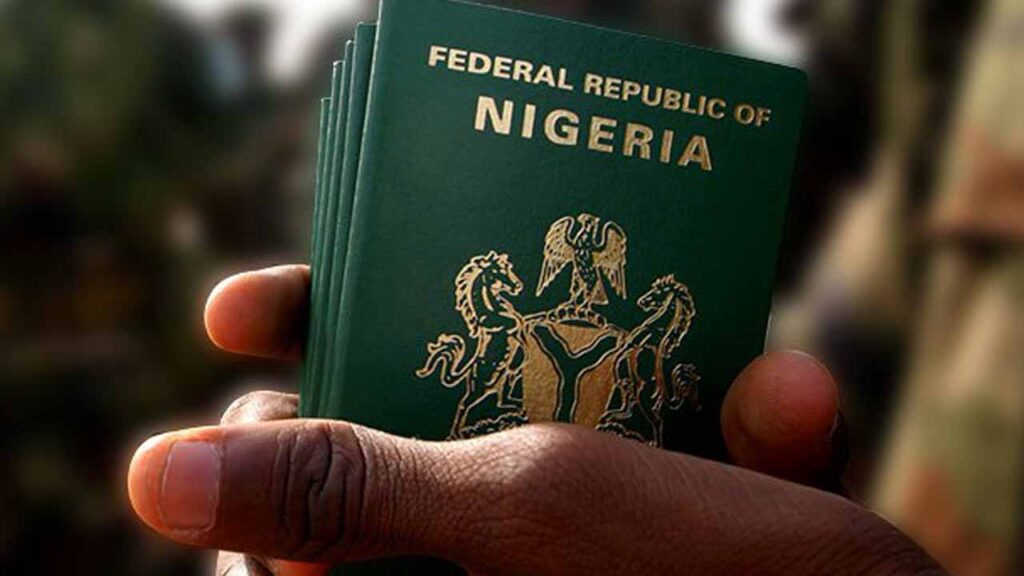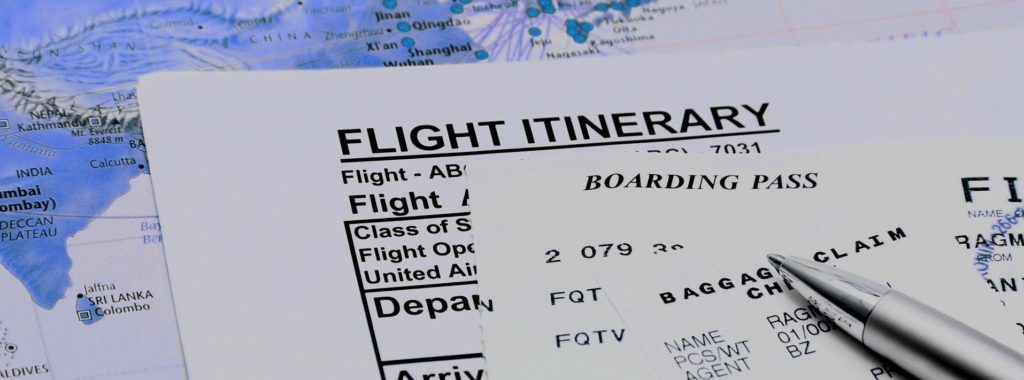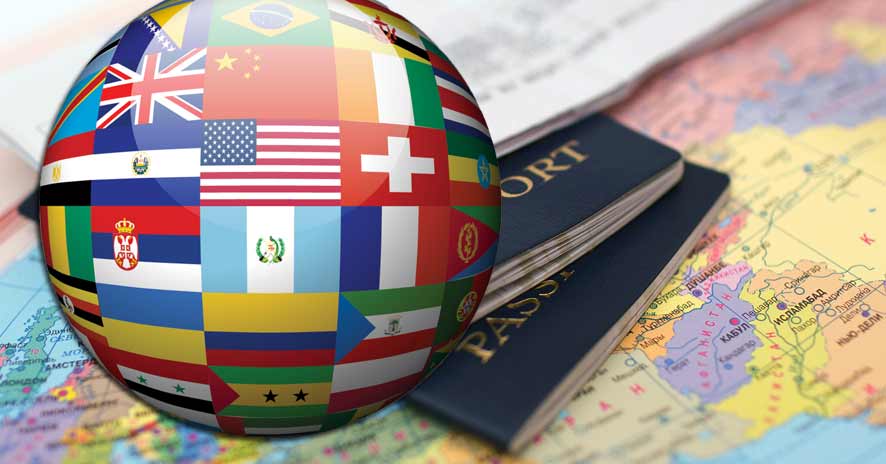Nigerians Japaing: Nigeria, a nation endowed with abundant human and natural resources, has seen many citizens seeking opportunities beyond its borders. The term “Japaing,” a slang used to describe leaving the country, has become increasingly popular as Nigerians explore avenues for personal and professional growth.
Economic challenges, educational pursuits, and the quest for improved living conditions are just a few of the factors driving this trend. In this extensive guide, we will delve into the multifaceted journey of “Japaing” and provide valuable insights into successfully navigating the process of travelling abroad from Nigeria.

Obtaining the Key to the World: International Passport
The first step on your journey to “Japaing” is obtaining the key to the world: the international passport. This essential document serves as your gateway to exploring new horizons, experiencing different cultures, and pursuing your dreams beyond the borders of Nigeria.
READ ALSO:
- US Embassy in Nigeria: More Profits, Fewer Visas
- ‘Japa’ Threatened As UK Govt Considers Tougher Visa Rules
The Significance of the International Passport
An international passport is more than just a travel document; it is a symbol of your identity and citizenship. Without it, you cannot embark on international travel or establish your presence in a foreign country. Whether you are seeking educational opportunities, better job prospects, or simply a change of scenery, the international passport is your ticket to making those aspirations a reality.
The Nigerian Digital International Passport
In recent times, the process of obtaining an international passport has become more streamlined thanks to the introduction of the Nigerian digital international passport. This modernised version of the passport incorporates advanced security features and biometric data, enhancing its authenticity and reliability.
- The Application Process: Getting your international passport is now more efficient than ever before. The application process typically takes around 24 hours, a significant improvement from previous procedures that could take weeks. This means that once you have all the required documents and information, you can have your international passport ready in no time.
- Cost Considerations: It’s important to note that obtaining an international passport does come with associated costs. The fees for the international passport application can vary based on the processing speed you choose. The faster you want your passport, the higher the cost might be. The fees generally range from N18,000 to N25,000. While this might seem like an investment, it is crucial in your future endeavours and the first step towards your “Japaing” journey.
- The Documentation Process: To apply for an international passport, you’ll need to provide certain documents and information. These typically include proof of identity, citizenship, birth certificate, passport-sized photographs, and other relevant supporting documents. Ensuring you have all the necessary documents in order will expedite the application process and prevent unnecessary delays.
The Role of Immigration Offices
To begin your international passport application, you can visit any immigration office in Nigeria. These offices are equipped to guide you through the process, provide you with the necessary forms, and answer any questions.
Their assistance ensures that your application is complete and accurate, reducing the likelihood of rejection or complications.
Selecting Your Destination: Factors to Consider
Choosing the right destination for your international journey – colloquially referred to as “Japaing” – is a critical decision that can greatly impact your overall experience. Each country offers unique opportunities, challenges, and cultural experiences.
To make an informed choice that aligns with your goals and aspirations, it’s important to consider various factors when selecting your destination.
1. Purpose and Goals: Your travel purpose plays a significant role in determining the most suitable destination. Are you pursuing education, seeking job opportunities, starting a business, or simply exploring? Different countries offer different advantages based on your intentions.
2. Economic Opportunities: Consider the economic prospects of your chosen destination. Research the job market, demand industries, and career growth potential. Some countries may offer better job opportunities and higher wages in your expertise.
3. Cost of Living: The cost varies widely from country to country. Consider accommodation, transportation, food, healthcare, and education expenses. Ensure that your budget aligns with the lifestyle you wish to maintain abroad.
4. Language and Communication: Language can be a significant factor in your daily life. Consider whether you’re comfortable living in a country where you speak the local language or prefer a destination where English is widely spoken.
5. Quality of Education and Research Opportunities: If your goal is education, research universities and institutions in your chosen country. Evaluate their rankings, reputation, and the programs they offer in your field of interest.
6. Cultural Compatibility: Different cultures have different values, norms, and social expectations. Research the cultural aspects of your destination to ensure you’re comfortable and compatible with the local way of life.
7. Safety and Security: The safety and security of a country are paramount. Research crime rates, political stability, and healthcare facilities to ensure that you’ll be in a secure environment.
8. Immigration Policies: Understand the immigration policies of your chosen country. Some countries may have more lenient policies for students, professionals, or entrepreneurs, making obtaining necessary visas and permits easier.
9. Healthcare Facilities: Access to quality healthcare is crucial. Research the healthcare system in your destination, including the availability of medical services and health insurance options.
10. Social Support and Community: Consider whether there is a community of fellow expatriates or nationals from your home country in your chosen destination. Having a support network can ease the process of acclimatisation.
11. Climate and Environment: The climate and environment of a country can significantly impact your lifestyle. Consider whether you prefer a tropical, temperate, or arid climate and enjoy urban or rural settings.
12. Visa and Residency Requirements: Investigate your potential destination’s visa and residency requirements. Some countries have more streamlined processes for obtaining long-term visas or residency permits.
MORE READS:
- Martie Allen Biography: Meet Kristy McNichol’s Elusive Partner
- 25 Famous Artists Everyone Should Know, From Frida Kahlo To Da Vinci

Visa-Free Countries for Nigerian Passport Holders in Africa
| Country | Continent | Duration of Stay | More Information |
|---|---|---|---|
| Benin | Africa | 90 Days | ECOWAS |
| Botswana | Africa | N/A | |
| Burkina Faso | Africa | N/A | ECOWAS |
| Cameroun | Africa | 90 Days | |
| Cabo Verde | Africa | N/A | ECOWAS |
| Chad | Africa | 90 Days | |
| Comoros | Africa | 45 Days | |
| Côte d’Ivoire | Africa | 90 Days | ECOWAS |
| Djibouti | Africa | 60 Days | |
| Ethiopia* | Africa | 90 Days | Ethiopian eVisa |
| The Gambia | Africa | 90 Days | ECOWAS |
| Ghana | Africa | 90 Days | ECOWAS |
| Guinea | Africa | 90 Days | ECOWAS |
| Guinea-Bissau | Africa | 90 Days | ECOWAS |
| Kenya | Africa | N/A | Kenyan eVisa |
| Lesotho | Africa | 90 Days | Lesotho eVisa |
| Liberia | Africa | 90 Days | ECOWAS |
| Madagascar | Africa | 90 Days | Madagascar eVisa |
| Mali | Africa | 90 Days | ECOWAS |
| Mauritania | Africa | 30 Days | |
| Mauritius | Africa | 14 Days | Mauritius eVisa |
| Mozambique* | Africa | 30 Days | |
| Niger | Africa | 90 Days | ECOWAS |
| Rwanda | Africa | 30 Days | |
| São Tomé and Príncipe | Africa | 30 Days | eVisa |
| Senegal | Africa | 90 Days | ECOWAS |
| Sierra Leone | Africa | 90 Days | ECOWAS |
| Somalia | Africa | 90 Days | Somalia eVisa |
| South Africa | Africa | N/A | |
| Togo | Africa | 90 Days | ECOWAS |
| Uganda | Africa | 30 Days | Uganda eVisa |
| Zambia | Africa | N/A | |
| Zimbabwe | Africa | N/A |
Visa on Arrival Countries for Nigerian Passport Holders:
| Country | Continent | Duration of Stay | More Information |
|---|---|---|---|
| Comoros | Africa | 45 Days | Comoros eVisa |
| Iran | Asia | 30 Days | Iran Visa |
| Lebanon | Asia | 30 Days | Lebanon eVisa |
| Madagascar | Africa | 30 Days | Madagascar eVisa |
| Maldives | Asia | 30 Days | Maldives eVisa |
| Mauritania | Africa | 30 Days | Mauritania eVisa |
| Mozambique* | Africa | 30 Days | |
| Somalia | Africa | 30 Days | Somalia eVisa |
| Timor-Leste | Asia | 90 Days | Timor-Leste eVisa |
| Tuvalu | Oceania | 30 Days | Tuvalu eVisa |
| Kenya* | Africa | N/A | |
| Rwanda | Africa | N/A | |
| Ethiopia | Africa | N/A | |
| Uganda | Africa | N/A |
Please be aware that visa policies can change, so verifying the information from official government sources or embassy websites is always recommended before making travel plans.
Visa Process in Nigeria: Step-by-Step Guide
Obtaining a visa is often crucial to “japaing” – leaving Nigeria for international opportunities and experiences. Navigating the visa application process can be intricate and sometimes challenging, but with careful preparation and understanding, you can increase your chances of a successful outcome.
This guide will take you through the key steps of the visa process, from application to approval.
1. Research and Choose the Right Visa Type: Different countries offer various types of visas, such as tourist, student, work, and business visas. Determine which visa type aligns with your purpose of travel. The requirements and documentation for each visa category vary significantly, so select the most appropriate one.
2. Gather Required Documents: Each visa application has a list of required documents. These may include your passport, application form, passport-sized photographs, proof of funds, travel itinerary, invitation letters (if applicable), and other supporting documents. Make sure to compile all necessary paperwork meticulously.
3. Fill Out the Application Form: Complete the visa application form accurately and truthfully. Even minor errors or inconsistencies can lead to delays or rejections. Double-check the form before submission.
4. Book an Appointment: You’ll need to schedule an appointment at the embassy or consulate of your chosen destination. Some countries allow you to book appointments online, while others may require you to visit their application centre in person.
5. Attend the Visa Interview: For certain visa types, an interview is mandatory. Prepare for the interview by reviewing your application, understanding the purpose of your trip, and being ready to answer questions about your background, finances, and travel plans. Dress appropriately and arrive on time.
6. Pay the Application Fee: Visa applications typically require a non-refundable fee. The amount varies based on the visa type and the country you’re applying to. Keep in mind that paying the fee does not guarantee approval.
7. Attend Biometrics Appointment: Many countries require applicants to attend a biometrics appointment, where their fingerprints and photographs will be taken. This information is used to verify your identity and is often a mandatory step in the application process.
8. Provide Medical Examination Results: Depending on the destination and visa type, you may need to undergo a medical examination to meet health requirements. This is common for long-term visas, such as study and work visas.
9. Wait for Processing: The processing time for visas varies from country to country and can range from a few weeks to several months. Be patient during this period and refrain from making non-refundable travel arrangements until you have received your visa.
10. Receive Visa Decision: Once your application has been processed, you will receive a decision regarding your visa. This decision could be an approval, a rejection, or a request for additional information. Your visa may be affixed to your passport or issued electronically if approved.
11. Prepare for Arrival: If your visa is approved, prepare for your journey. Book your flight, arrange accommodation, and ensure you have enough funds to cover your initial expenses.

Steps to Book Your Flight Ticket
Booking a flight ticket is a pivotal step in your journey from Nigeria to international shores. Whether seeking better economic opportunities, pursuing education, exploring new cultures, or simply starting a new chapter, securing a flight is your gateway to the world.
This guide will walk you through booking a flight ticket, ensuring your transition from “japaing” to your desired destination is smooth and hassle-free.
1. Determine Your Travel Dates: Before booking your flight, understand your intended travel dates. This will help you narrow down your options and find the best deals. Be flexible with your dates if possible, as flight prices can vary significantly based on the time of year and day of the week.
2. Search for Flights: Use online flight search engines and platforms to compare prices, flight durations, and layover times. Popular platforms like Skyscanner, Google Flights, and Expedia allow you to enter your departure city, destination, and travel dates to find available flights. These platforms also provide filters to help you refine your search.
3. Consider Different Airlines: Different airlines offer varying service levels, comfort, and amenities. Research airlines that operate flights between Nigeria and your chosen destination. Read reviews, compare in-flight services, and check baggage policies to make an informed decision.
4. Compare Prices: Flight prices vary greatly depending on booking time, airline, route, and travel class. Compare prices across different airlines and travel search engines to find the most cost-effective option that meets your needs.
5. Look for Deals and Discounts: Keep an eye out for special deals, promotions, and discounts offered by airlines. Subscribe to newsletters, follow airlines on social media, and set fare alerts to be notified of any price drops or promotions.
6. Consider Layovers: Direct flights are often preferred for convenience but can be more expensive. If you’re open to it, consider flights with layovers, as they can significantly reduce the overall cost. Just make sure to account for layover durations and transit times.
7. Choose Your Travel Class: Airlines offer different travel classes, including economy, premium economy, business, and first class. Choose a travel class that aligns with your budget and preferences. Remember that upgrading to a higher class may offer more comfort and amenities.
8. Book Your Flight: After finding a suitable flight, book. Follow the instructions on the booking platform, enter your details, and review your flight itinerary before paying. Ensure that the names and dates are correct before confirming.
9. Secure Your Seat: Many airlines offer the option to select your seat during the booking process. Choose a seat that suits your preferences, such as a window or aisle seat. Some airlines may charge an additional fee for seat selection.
10. Payment and Confirmation: Provide payment details and complete the booking process. After successful payment, you’ll receive a confirmation email with your flight details, booking reference, and e-ticket. Keep this information safe; you’ll need it for check-in and future inquiries.
11. Prepare for Check-in: Before your departure date, check the airline’s check-in policies and procedures. Some airlines offer online check-in, saving you time at the airport. Review baggage allowances and any additional requirements.
Financial Planning for Your Journey
Financial planning is a crucial aspect of “Japaing.” Calculate the required funds based on your chosen country’s Basic Travel Allowance (BTA). The BTA covers initial expenses such as accommodation and transportation upon arrival.
Depending on the country, BTAs can range from N300,000 to N3.5 million. Sufficient funding ensures a smooth and worry-free start to your international adventure.
Embarking on an international journey from Nigeria requires careful financial planning to ensure a smooth transition and a stable start in your new destination. Whether pursuing education, employment, or simply seeking a better quality of life, having a solid financial foundation will set you on the right path.
In this section, we’ll explore critical aspects of financial planning that you should consider before moving.
1. Estimate Costs: Before leaving Nigeria, create a comprehensive budget that outlines your anticipated expenses in your new country. Include accommodation, transportation, food, health insurance, utilities, education (if applicable), and personal expenses. Research the cost of living in your destination to get an accurate estimate.
2. Opening a Bank Account: Consider opening a bank account in your destination country before you arrive. This can make managing your finances, receiving payments, and handling transactions easier. Research local banks and their requirements for non-resident account holders.
3. Currency Exchange and Money Transfer: Research the most cost-effective ways to exchange Nigerian Naira (NGN) for the local currency of your destination. Compare exchange rates banks, exchange bureaus, and online money transfer services offer. Consider transferring a portion of your funds before you travel to have some local currency on hand.
4. Basic Travel Allowance (BTA): Many countries require travellers to have a certain amount of funds, known as Basic Travel Allowance (BTA), as proof of their ability to support themselves during their stay. Ensure you have the required amount in your bank account and gather the necessary documentation to demonstrate your financial capacity.
5. Set Up a Financial Safety Net: Moving to a new country comes with uncertainties, and it’s essential to have a financial safety net to fall back on in case of unexpected expenses or emergencies. Consider keeping a separate savings account dedicated to emergencies or unexpected situations.
6. International Health Insurance: Healthcare costs can be significant in some countries. Ensure you have comprehensive international health insurance covering medical expenses, emergencies, and required treatments. Research different insurance options and choose one that suits your needs.
7. Understand Tax Implications: Familiarize yourself with the tax regulations in your destination country. Some countries require residents to pay taxes on their worldwide income, while others may have specific rules for expatriates. Consult a tax professional to understand your obligations and ensure compliance.
8. Plan for Currency Fluctuations: Currency exchange rates can fluctuate, affecting the value of your savings and income. Consider using currency exchange platforms that offer competitive rates or hedging options to minimise the impact of currency fluctuations.
9. Savings and Investment Strategies: Depending on your financial goals, explore savings and investment opportunities in your destination country. Research local investment options, retirement plans, and other financial instruments to make informed decisions about growing wealth.
10. Stay Informed: Keep yourself updated on financial news, changes in currency exchange rates, and economic conditions in Nigeria and your destination country. This awareness will help you make informed financial decisions and adapt to changing circumstances.
Additional Tips for Seamless Travel
- Apply to Study: Postgraduate studies in a foreign country can facilitate learning and long-term residence.
- Attend Conferences: Professionals can leverage conferences to secure opportunities for international travel.
- Represent Your Country: Excelling in your field might lead to opportunities for international representation.
- Assess Local Conditions: Research your chosen destination’s political, economic, and security conditions.
- Stay Informed: Keep track of changes in visa policies, requirements, and immigration regulations.
Challenges and Opportunities Abroad
Embarking on a journey to live abroad is a significant step that presents challenges and opportunities. While the allure of a new environment and the promise of a better life can be enticing, it’s essential to be aware of the potential hurdles you may face and the avenues for growth that await you.
This section will explore the challenges and opportunities of living abroad as a Nigerian.
Challenges
1. Cultural Adjustment: Adapting to a new culture, customs, and social norms can be challenging. How people interact, communicate, and behave may differ from what you’re accustomed to. Overcoming cultural differences requires an open mind, patience, and a willingness to learn.
2. Language Barrier: Language barriers can hinder effective communication and integration. If your destination country has a different official language, improving your language skills is important to navigate daily interactions, find employment, and build relationships.
3. Employment Obstacles: Finding suitable employment in a new country can be daunting. Different industries, job markets, and professional networks may require you to reevaluate your career trajectory and explore new opportunities. Credential recognition and work permit requirements can also pose challenges.
4. Homesickness: Leaving your home country and loved ones can lead to homesickness and loneliness. The absence of familiar surroundings, friends, and family support networks can be emotionally challenging. Staying connected through technology and building new relationships can help mitigate these feelings.
5. Legal and Immigration Processes: Navigating immigration processes, obtaining work permits, and complying with legal requirements can be complex. Keeping up with visa renewals, residency applications, and legal obligations can be time-consuming and require careful attention to detail.
Opportunities
1. Personal Growth and Development: Living abroad exposes you to diverse experiences, perspectives, and challenges that foster personal growth. Overcoming cultural barriers, adapting to new environments, and developing resilience can enhance self-awareness and a broader worldview.
2. Education and Skill Enhancement: Studying or working abroad offers opportunities to gain education and skills that may not be readily available in Nigeria. Access to quality education, training programs, and exposure to advanced technologies can boost your career prospects.
3. Networking and Global Connections: Living abroad allows building an international network of contacts and connections. Networking with people from various backgrounds can open doors to new career opportunities, collaborations, and friendships.
4. Cross-Cultural Competence: Navigating diverse cultural contexts enhances your cross-cultural competence, a valuable skill in our globalised world. Learning to communicate effectively with individuals from different cultural backgrounds is an asset in both personal and professional spheres.
5. Financial Advantages: Depending on your destination, you may have access to higher-paying job opportunities or more favourable economic conditions. Earning in a stronger currency can provide financial stability and allow you to achieve personal financial goals.
6. Experiencing New Cultures: Living abroad offers the chance to immerse yourself in a new culture and explore new cuisines, traditions, and lifestyles. This enriching experience can broaden your horizons and provide a unique perspective on the world.
7. Contributing to Development: Nigerians living abroad often contribute to developing both their home and host countries. Remittances sent back to Nigeria support families and local economies, while professional expertise can positively impact industries and communities.

Top 10 Best Countries to Travel to from Nigeria
Choosing the best country to travel to from Nigeria is a decision that depends on various factors, including your interests, goals, and preferences. While each destination offers unique experiences, some countries are more popular among Nigerian travellers due to visa accessibility, cultural similarities, and opportunities for work and education.
In this section, we’ll explore some of the best countries that Nigerians often consider for travel and living abroad:
1. United States: The United States is a top choice for many Nigerians seeking educational opportunities, career advancement, and a diverse cultural experience. With numerous universities and job opportunities, Nigerians often pursue higher education and work in technology, healthcare, and finance.
2. Canada: Canada’s welcoming immigration policies, high quality of life, and strong education system make it an attractive destination for Nigerians. Cities like Toronto and Vancouver offer a multicultural environment and opportunities in various industries.
3. United Kingdom: The historical ties between Nigeria and the United Kingdom attract many Nigerians to study and work in the UK. London, in particular, is a hub for finance, arts, and culture, providing diverse experiences for Nigerian expatriates.
4. Australia: Australia’s strong economy, outdoor lifestyle, and high standard of living appeal to Nigerians looking for new opportunities. The country offers a range of study and work options for international students and skilled workers.
5. United Arab Emirates (UAE): The UAE, especially Dubai, is a popular destination for Nigerians seeking job opportunities in sectors like finance, hospitality, and construction. The tax-free income and modern infrastructure make it an attractive choice.
6. South Africa: South Africa offers a unique blend of cultures, natural beauty, and economic opportunities. Johannesburg and Cape Town are major cities with vibrant job markets and educational institutions.
7. Germany: Germany’s strong economy and emphasis on engineering and technology make it appealing to Nigerians pursuing careers in STEM fields. The country also offers tuition-free education for international students in some regions.
8. Malaysia: Malaysia is a budget-friendly destination for Nigerians seeking quality education and diverse cultural experiences. Many Nigerian students choose to study in Malaysia due to its affordable tuition fees and English-taught programs.
9. China: China’s rapid economic growth and expanding job market attract Nigerian professionals in international trade, engineering, and teaching English. Cities like Beijing and Shanghai offer a blend of tradition and modernity.
10. Ireland: Ireland’s friendly atmosphere, the growing technology sector, and renowned universities make it a rising destination for Nigerian students and professionals. Dublin, in particular, has a vibrant international community.
Conclusion
Living abroad as a Nigerian presents a mix of challenges and opportunities. Embracing the challenges with determination and a positive mindset can lead to personal and professional growth.
The opportunities to learn, adapt, build connections, and contribute to the global community make the experience of living abroad a transformative one. Recognising the difficulties and rewards, you can navigate this journey with resilience and purpose.
FAQs
1. What is the first step when planning to travel abroad from Nigeria?
Obtaining an international passport is the initial step. An international passport is essential for establishing identity and citizenship and is mandatory for leaving the country. The new Nigerian digital international passport can be acquired in about 24 hours through the immigration office.
2. How crucial is it to define the purpose of travelling abroad?
Defining your purpose is paramount. Having a clear vision for your trip helps avoid the pitfalls of aimless travel. Questions like why you’re leaving Nigeria, where you’ll live, and how long you’ll stay are essential. Purposefujourneyel ensures better preparation and helps prevent undesirable outcomes.
3. What factors should be considered when selecting a destination country?
Several factors play a role in choosing a destination: the people’s hospitality, local laws, and government, among others—research to determine if the country aligns with your needs and preferences. Also, check whether a visa is required for Nigerian passport holders.
4. How does the visa process work for Nigerian citizens travelling abroad?
The visa process involves applying for a visa from the embassy of your chosen country. This can be a rigorous and time-consuming process. Preparing all required documents, attending an interview, and paying the necessary fees are part of the procedure. Some countries offer eVisa or visa-on-arrival options, while others require pre-arranged visas.
5. What financial considerations are important for travelling abroad from Nigeria?
Adequate funding is crucial for international travel. Besides flight tickets and accommodation, having the Minimum Basic Travel Allowance (BTA) is mandatory for some countries. BTA ensures you can cover initial expenses upon arrival. The required amount varies by country and can range from hundreds of thousands to millions of Naira.





